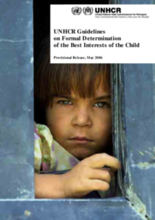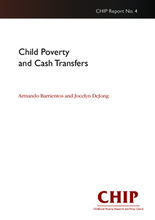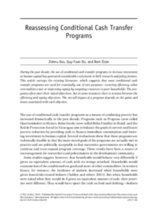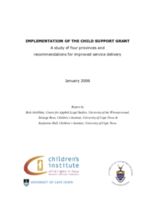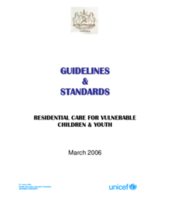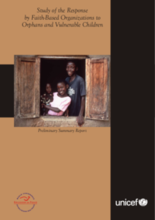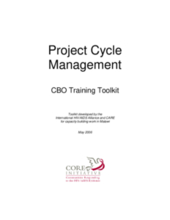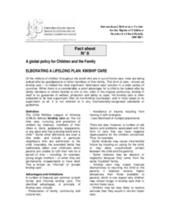Displaying 13931 - 13940 of 14579
Guidelines for when and how to make a decision regarding the best interests of the child in the case of emergencies. Includes useful information for addressing unaccompanied and separated children including, temporary and alternative care arrangements, tracing and reunification, and child participation.
This paper examines the effectiveness of targeted cash transfers programs on reducing childhood poverty. It also explored the comparatives effectiveness of different kinds of cash transfers.
The report details the scale and nature of migritaion by children entering the United States. It includes policy analysis and recommendations around the protection of seperated and unaccompanied children.
This article reviews the existing literature on conditional cash transfer programs around the world. It urges the careful consideration of multiple factors in program planning and policy making to achieve successful long-term outcomes.
Using fieldwork data from six sites, this report addresses the need for improved delivery of the Child Support Grant in South Africa. Includes a comprehensive review of the grant components and current system of delivery. Recommended changes to the act and regulations are highlighted.
A website that contains statistical information on children in 27 countries across Central and Eastern Europe. The site contains relevant child protection indicators, including the number of children in institutional care.
A situational analysis of policy and care surrounding children affected by HIV/AIDS in Lesotho. Includes a comprehensive, practice-oriented discussion of alternatives to residential care, placement procedures and standards of residential care.
A study that looks at the response of faith-based organizations in Kenya, Malawi, Mozambique, Namibia, Swaziland, and Uganda. The report contains statistical information, and details positive care practices to build on, and negative examples to avoid.
A toolkit to support community based organizations in developing countries to design, manage and learn from their projects in a systematic way. It focuses on building understanding of the ‘project cycle’, and is primarily targeted for organizations working on issues related to HIV and AIDS.
A brief fact sheet that provides an overview of kinship care.

